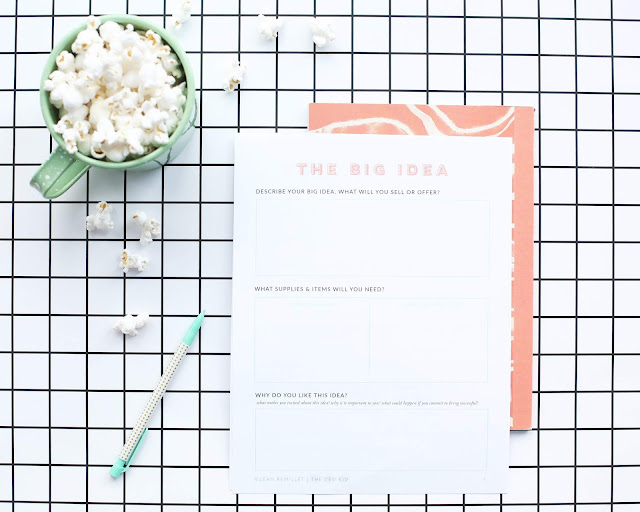Establishing a Routine
Over the past few years, I've had various time schedules. Working part-time while studying, 9-5 jobs and working from home. They all posed their own problems, and that's why finding a routine that works for you is so important.
I'm at a point right now where I'm trying to establish a new routine that will help me be more productive with my time without major spikes in my cortisol levels (Stressing about a lack of time is not efficient).
I love listening to people's tips on organisation, especially with their time. I'm certainly no expert, and I have plenty to improve on but below are some of the things I've learned that help me use time more efficiently.
I like knowing when I need to leave for things to see how much time I'm really working with.
Sit down with a piece of paper and a pen (I like to colour code commitments by category), block out anything you already have timetabled (work, classes, meetings, etc.).
Deadlines next, I do the same thing, I block them out. I also mark out personal deadlines at this point because I like having interim deadlines for large tasks with a good amount of buffer time, things always inevitably take longer than we expect so it's better to factor this in.
I follow this up with any long-standing plans I've made to see friends.
Relaxing doesn't necessarily mean binging the newest season of a TV programme, it's whatever recharges you. Some people feel better after a run (I don't know those people, but I've heard it's a thing), others like reading, going to the gym or having a peaceful bath.
It doesn't matter what you do, just make sure you've carved a little time out in your week for yourself to unwind and relax. Anywhere from a few hours once a week to a little bit of time every day, whatever works best for you.
If you know you need a certain amount of time to meet a deadline or self-driven goal, then block that in too.
Time batching is your new best friend! If you have multiple things to work on, then try and group similar tasks together. Jumping from task to task can be mentally taxing and use up a lot of energy making you less productive. (If I could schedule all of my lectures for the one day, I would, but I can't.)
For example, if I have to do a lot of research, I try to group that so I'm only visiting the library one day and get all the information I need. Or if I have a number of emails to attend to, I'll set aside 30 minutes to an hour to deal with them all leaving me to get on with other tasks after that. If it's urgent, they'll call!
Comment below anything that helps you stay organised and establish a routine!
I'm at a point right now where I'm trying to establish a new routine that will help me be more productive with my time without major spikes in my cortisol levels (Stressing about a lack of time is not efficient).
I love listening to people's tips on organisation, especially with their time. I'm certainly no expert, and I have plenty to improve on but below are some of the things I've learned that help me use time more efficiently.
SLEEP
Decide when you're going to sleep and try and be consistent with it (This is something I'm still working on). Sleep is the foundation of establishing a routine, especially if your daily schedule varies a lot.
WRITE DOWN YOUR WEEK
When I know I have a new schedule to get used to I HAVE to write it down otherwise I'm probably going to forget, or be extremely stressed about the timing of things.I like knowing when I need to leave for things to see how much time I'm really working with.
Sit down with a piece of paper and a pen (I like to colour code commitments by category), block out anything you already have timetabled (work, classes, meetings, etc.).
Deadlines next, I do the same thing, I block them out. I also mark out personal deadlines at this point because I like having interim deadlines for large tasks with a good amount of buffer time, things always inevitably take longer than we expect so it's better to factor this in.
I follow this up with any long-standing plans I've made to see friends.
FACTOR IN TIME FOR TRAVELLING
Whatever you've got written down at this point you will most likely have to leave your house to attend some of those events. How long is it going to take you to get there? Can you walk? Or do you need to drive or catch some form of public transport?
Establish this and block that time off too.
The whole point of this is to see when you have "free" time. When you know what time you're working with you can plan it more effectively.
SCHEDULE TIME TO RELAX
Most of us take the time to relax, but it's fitted into the nooks and crannies of our lives. This is especially important if you're like me and social activities zap a lot of your energy; you need to schedule time in your week to recharge. Nobody is getting the best side of you if you're tired and foggy.Relaxing doesn't necessarily mean binging the newest season of a TV programme, it's whatever recharges you. Some people feel better after a run (I don't know those people, but I've heard it's a thing), others like reading, going to the gym or having a peaceful bath.
It doesn't matter what you do, just make sure you've carved a little time out in your week for yourself to unwind and relax. Anywhere from a few hours once a week to a little bit of time every day, whatever works best for you.
OK, SO NOW WHAT?
You've got all the important things mapped out in your week, now you can see what time you have available to meet deadlines and plan extra social events.If you know you need a certain amount of time to meet a deadline or self-driven goal, then block that in too.
Time batching is your new best friend! If you have multiple things to work on, then try and group similar tasks together. Jumping from task to task can be mentally taxing and use up a lot of energy making you less productive. (If I could schedule all of my lectures for the one day, I would, but I can't.)
For example, if I have to do a lot of research, I try to group that so I'm only visiting the library one day and get all the information I need. Or if I have a number of emails to attend to, I'll set aside 30 minutes to an hour to deal with them all leaving me to get on with other tasks after that. If it's urgent, they'll call!
Comment below anything that helps you stay organised and establish a routine!
"For I know the plans I have for you,' declares the LORD, ' plans to prosper you and not to harm you, plans to give you hope and a future." - Jeremiah 29:7
__________
FREE PRINTABLE WEEKLY PLANNERS ON THE "RESOURCE" PAGE.












My routine doesn't exist haha but I hope to create one soon but it's really difficult when I'm unemployed. church helps when i'm there on a Sunday. I might be helping out at the cafe at church during the week so that'll help too :D your post made me think about creating one soon too so thank you ! :D
ReplyDeleteThat would be great helping out at the church! Creating a routine when you don't work a 9-5 job (or regular hours) is challenging, even setting yourself a time in the morning to go out for a walk can help create a bit of order to your day.
Delete